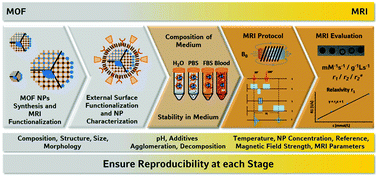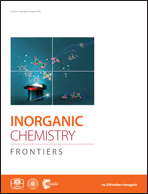Metal–organic framework nanoparticles for magnetic resonance imaging
Abstract
Metal–organic framework (MOF) chemistry offers the unique possibility of bridging organic and inorganic chemistry to develop hybrid crystalline porous materials and opens the door to the synthesis of highly functional bulk- or nano-materials. A potential future field of application is their biomedical application as a theranostic agent or simply as a new contrast agent for magnetic resonance imaging (MRI). MRI is one of the most versatile imaging modalities in routine clinical examinations due to a wide range of usable contrast mechanisms. This in turn leads to a variety of conceivable nanoparticle designs as an MR contrast agent or theranostic. This review aims to integrate the state-of-the-art of MOF nanoparticles and their use in MRI. It gives an overview of the work done so far, focusing especially on the clinical applicability. Furthermore, it summarises the different factors for MR signal formation mechanisms important for the development of MR active nanoparticles and provides suggestions for a better comparison between different studies.

- This article is part of the themed collection: 2018 Inorganic Chemistry Frontiers Review-type Articles


 Please wait while we load your content...
Please wait while we load your content...